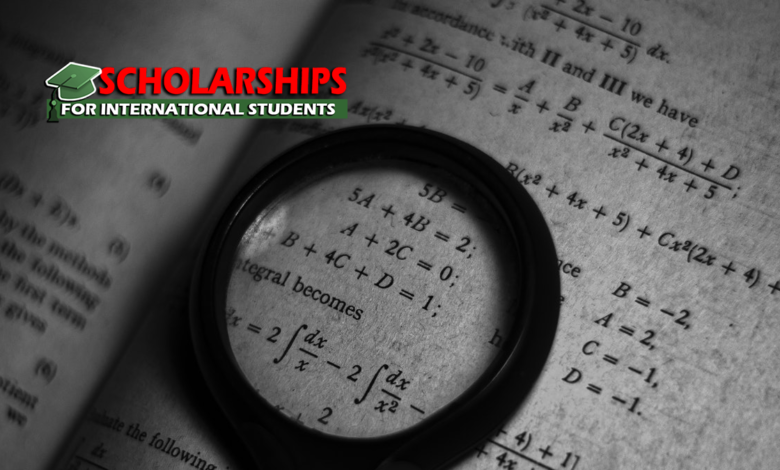PhD on Mathematical and computational approaches for analysis and control of complex dynamical systems
The Katholieke Universiteit Leuven

The mathematical modeling of complex engineering and biological systems naturally leads to a decomposition into simpler subsystems. Modelling the dynamics of subsystems typically leads to differential equations, while their interconnections give rise to algebraic equations. Furthermore, the fact that the transfer of material, energy and information (i.e. signal transmission) between subsystems is mostly not instantaneous, may be modeled by delay elements. All these model components can be integrated into one so-called Delay-Differential Algebraic Equation (DDAE) model. DDAE models are extremely flexible and amenable for a systematic and automated modeling procedure, at the basis of simulation, monitoring, prediction and control, yet what hinders a widespread use it that, inherently to the rich and sometimes non-trivial behavior of their solutions, there are still many open questions and mathematical challenges to be overcome, on which the project focuses.The PhD program will be built around three pillars. The first one concerns investigating theoretical properties of the models and developing of mathematical analysis methods (to assess, for example, the stability of the modeled system or its performance). The second pillar concerns uncertainty quantification, i.e., assessing the impact of modeling errors on the results of the analysis, thereby respecting and exploiting the structure of the overall system. Within the third pillar, the aim is to make the leap from analysis to the design of feedback controllers. Here, we assume that the described physical system can be actuated and that online measurements are available, which can then be used to alter the performance, robustness or resilience of the system in a desirable or optimal way. The design of the control law, which translates the measurements into the actuation, will be mainly model based, but complementary data-driven design methods and implementations will also be explored.
The focus of the over arching project will be on mathematical / algorithmic innovations and control theory, but a close link with engineering applications will be ensured throughout its execution, which enables a validation of the results and may inspire novel research questions. In this respect, the PhD project benefits from the unique position of the hosting NUMA section of KU Leuven as a very large applied mathematics center operating within a Faculty of Engineering Science, and it is well integrated with the many collaborations and ongoing projects on both the methodological and application side.Prerequisites are a solid basis knowledge of linear algebra and differential equations, a strong interest in a mathematically oriented project, enthusiasm and a critical mindset. Familiarity with control theory and good programming skills are not required but may be an advantage.
Profile
The ideal candidate has a Master degree in mathematics (pure, applied, computational mathematics) or a Master degree in Engineering (Mechanical, Electrical, Control, Mathematical Engineering). Applicants whose mother tongue is not English, must present an official language test report.
Offer
We offer fully funded PhD position in an international context for four years at the Numerical Analysis and Applied Mathematics (NUMA) section of the Department of Computer Science of KU Leuven, a hub for interdisciplinary research in the fields of Applied Mathematics and Systems & Control. The funding includes a very competitive salary and full social and medical insurance.KU Leuven is one of the top 50 universities in the world (top 10 in Europe) according to the Times Higher Education ranking and it ranks #7 (top in Europe) in the World’s Most Innovative Universities ranking elaborated by Reuters. It offers an exciting multi-disciplinary research environment, many opportunities for collaboration, and a broad range of training courses for PhD students.
Located in Belgium, at the heart of Europe, 25 minutes by train from Brussels and less than 3 hours from cities like Paris, London, Cologne or Amsterdam, Leuven is a cultural city, whose rich history is tightly connected with the one of the university, founded in 1425. The city is characterized by a vibrant international student lifestyle.
Interested?
Submit your application via the online application tool, including
1) a letter of motivation with a statement of skills and research interests,
2) a curriculum vitae,
3) university diploma copies and transcripts, and
4) names and contact information of 2 references.
Applications will be considered as soon as they are received, and the opening will be closed as soon as a suitable candidate has been hired. The formal application deadline is September 22, 2021.
There is flexibility with respect to the starting date, but the preference is given to a starting date before 2022.For more information please contact Prof. dr. ir. Wim Michiels, tel.: +32 16 32 70 64, mail: wim.michiels@kuleuven.be.You can apply for this job no later than September 22, 2021 via the online application toolKU Leuven seeks to foster an environment where all talents can flourish, regardless of gender, age, cultural background, nationality or impairments. If you have any questions relating to accessibility or support, please contact us at diversiteit.HR@kuleuven.be.





